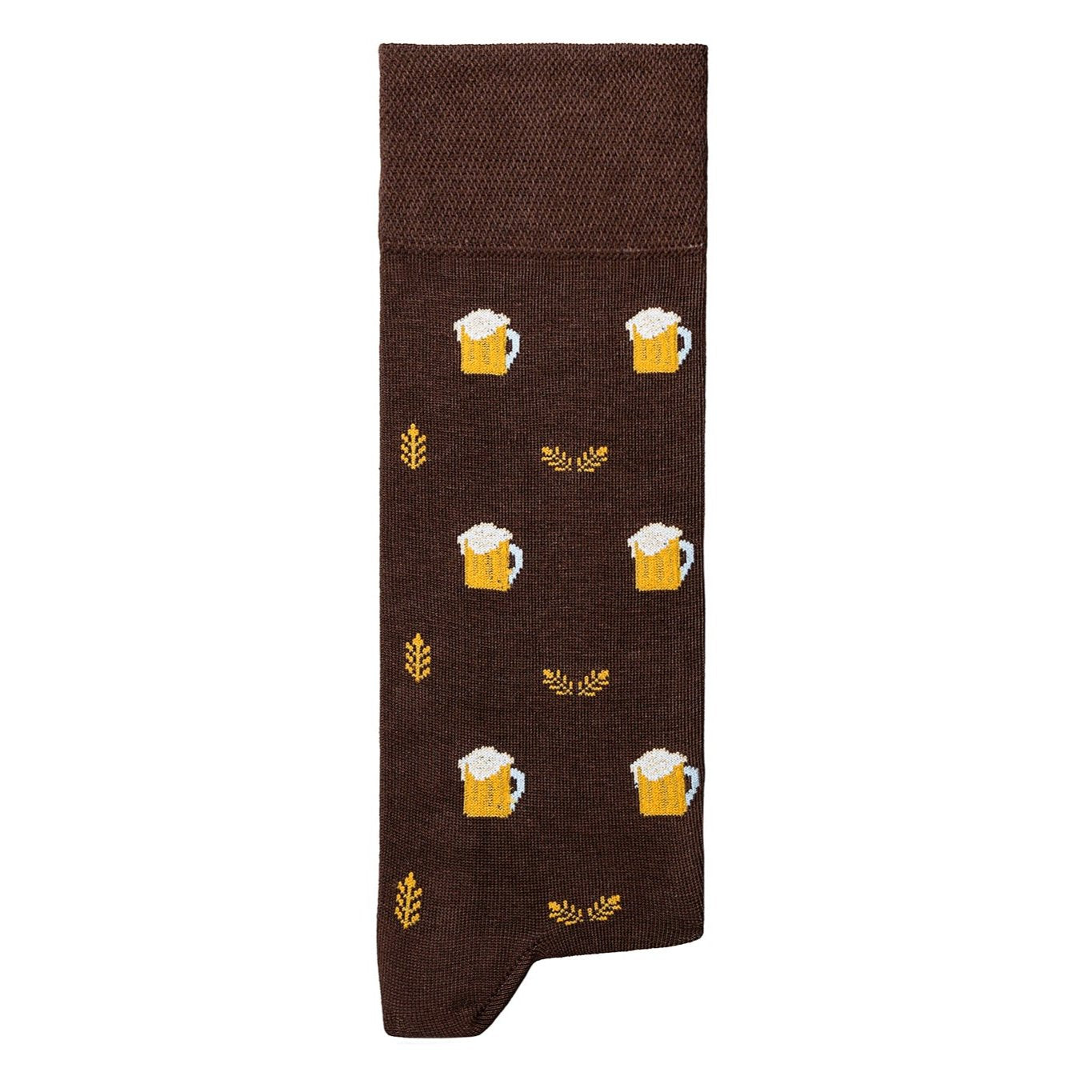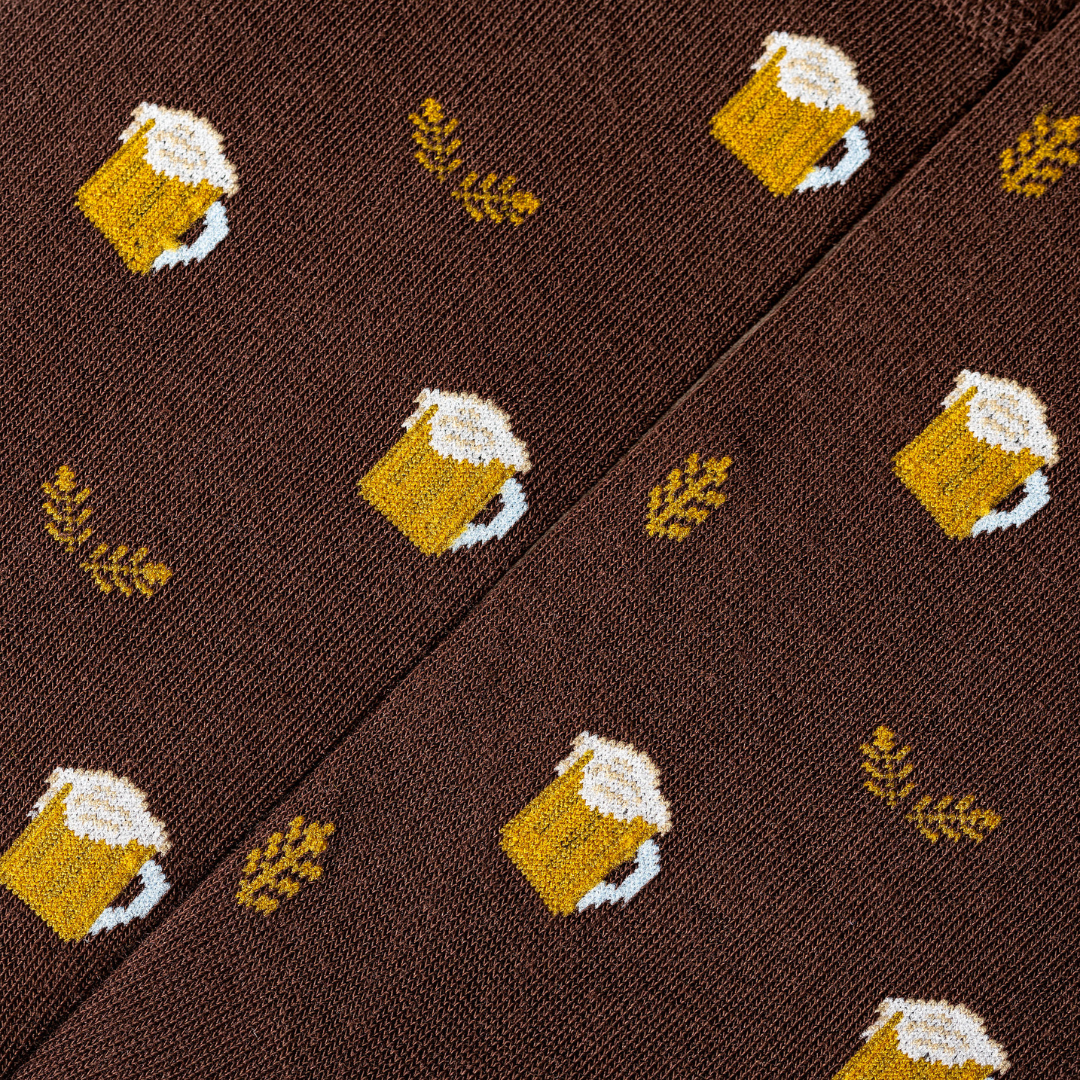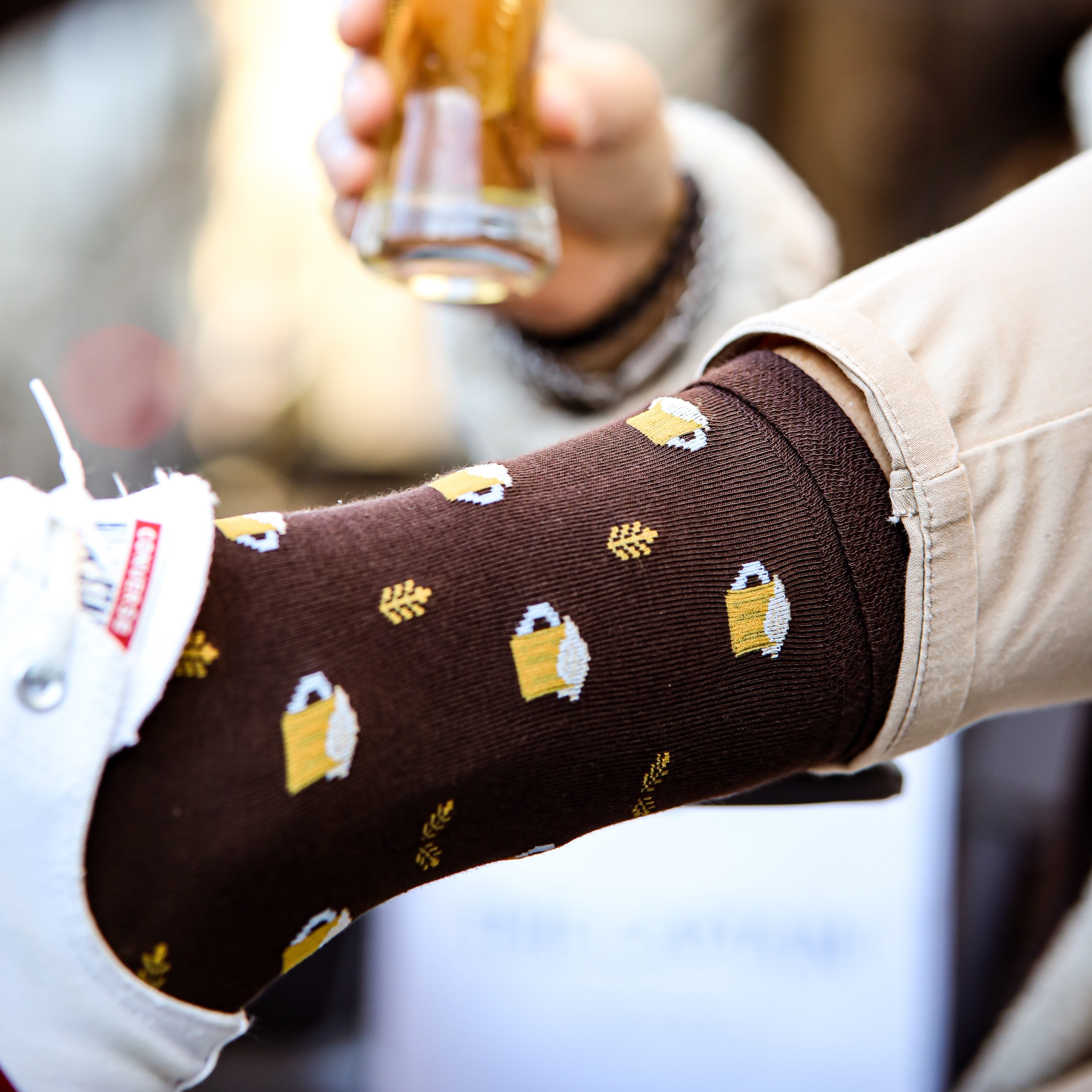


BEER Socks
Tax included.

powered by

% CO2e
Below category's global average
Product Life Cycle Analysis
0%
Raw Materials
Extraction and processing of raw materials (agriculture, mining, logging) create environmental impacts before manufacturing begins.
0%
Manufacturing
Production consumes energy, water, and other raw materials, resulting in emissions and natural resource depletion.
0%
Packaging
Packaging materials such as plastic, paper and metal are used to accommodate and transport the product, contributing for their carbon footprint.
0%
Distribution
The transportation of goods generates greenhouse gas emissions, influenced by transport type, distance, and logistics.
0%
Use Phase & End of Life
Product usage may consume energy and resources through a certain lifespan, while its disposal may result in landfilling, incineration and recycling, releasing greenhouse gases.
A product life cycle analysis (LCA), in terms of carbon footprint, assesses the total greenhouse gas emissions generated at each stage of a product’s life, from raw material extraction to production, distribution, use, and disposal.
Beer Socks: These socks are perfect for beer enthusiasts who love to celebrate good times with a great brew in hand.
Produced with the best Organic combed cotton, for true softness.
Socks guaranteed to stay put all day under the toughest circumstances.
Details
Crafted with 200 needles
Seamless
Oxford finishing
Composition: 80% Organic Combed Cotton :: 17% Polyamide :: 3% Elastane
For better results, wash inside out.
Choose options



BEER Socks
Sale price€13.50 EUR
Tax included.

powered by

% CO2e
Below category's global average
Product Life Cycle Analysis
0%
Raw Materials
Extraction and processing of raw materials (agriculture, mining, logging) create environmental impacts before manufacturing begins.
0%
Manufacturing
Production consumes energy, water, and other raw materials, resulting in emissions and natural resource depletion.
0%
Packaging
Packaging materials such as plastic, paper and metal are used to accommodate and transport the product, contributing for their carbon footprint.
0%
Distribution
The transportation of goods generates greenhouse gas emissions, influenced by transport type, distance, and logistics.
0%
Use Phase & End of Life
Product usage may consume energy and resources through a certain lifespan, while its disposal may result in landfilling, incineration and recycling, releasing greenhouse gases.
A product life cycle analysis (LCA), in terms of carbon footprint, assesses the total greenhouse gas emissions generated at each stage of a product’s life, from raw material extraction to production, distribution, use, and disposal.
